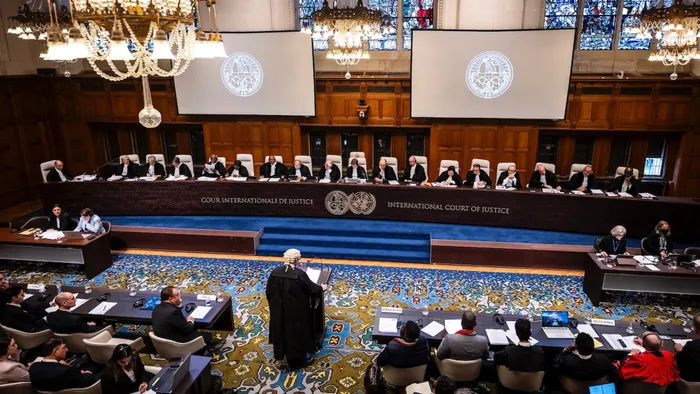The financial undertones of South Africa’s ICJ case against Israel
Party Funding

At the heart of the ANC’s application to the ICJ is its claim that Israel is committing genocide in Gaza, a narrative that gained traction after events in October 2023. Image: AFP
Image: AFP
IN the context of escalating tensions in the Middle East, the ANC took a bold step by filing a legal challenge against Israel at the International Court of Justice (ICJ).
This move has drawn international attention and raised questions regarding the financial underpinnings of this initiative. A report by the Institute for the Study of Global Antisemitism and Policy (ISGAP) discusses funding sources and their potential implications for governance within the ANC.
At the heart of the ANC’s application to the ICJ is its claim that Israel is committing genocide in Gaza, a narrative that gained traction after events in October 2023. The report notes that “the costs for the preliminary application are estimated at R200 million”.
The ANC’s financial struggles have been well-documented, with reported debts of around R500m in 2022. Observers have questioned how the party could afford such an undertaking, given its financial history. However, President Cyril Ramaphosa announced last year that the ANC had stabilised its finances, though specifics on this recovery were not disclosed.
The report also highlights significant donations to the ANC from entities such as United Manganese of Kalahari (UMK), partially owned by Viktor Vekselberg, a Russian businessman. These donations accounted for a notable portion of disclosed funding. While these contributions are legal, they have sparked discussions about how foreign funding may influence South African policymaking.
The relationship between financial resources and political strategies has also been considered in light of regional politics. The ANC’s stance on international issues such as the Israel-Palestine conflict has drawn attention to its historical solidarity with Palestinians. Critics have suggested that international legal pursuits may also serve domestic political purposes, but this remains a matter of interpretation.
The report further examines how external funding might support legal agendas against Israel. However, it is essential to note that no direct evidence has been presented to confirm undue foreign influence on ANC policy decisions.
Observers have raised concerns about transparency regarding funding sources for the ICJ case. The government has not disclosed specific details about how this initiative is being financed.
As the country navigates its role in international diplomacy, scrutiny of funding sources remains important in fostering accountability and public trust. The ANC’s legal challenge at the ICJ underscores broader questions about governance and ethical standards in political decision-making.
Ultimately, as the ANC pursues its legal agenda, it faces challenges in balancing international commitments with domestic priorities. Transparency and accountability will be critical in addressing public concerns and maintaining legitimacy on both local and global stages.
Related Topics: